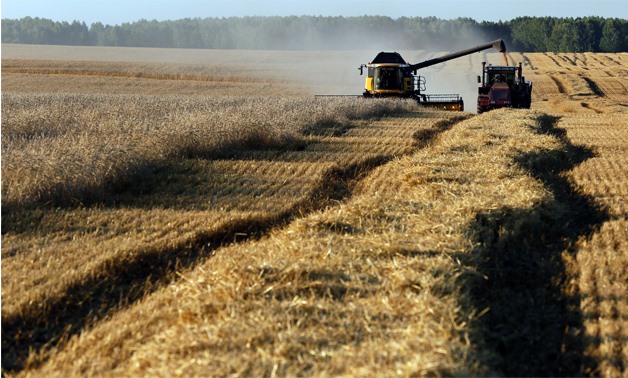
A combine harvests wheat in a field of the Solgonskoye farming company near the village of Talniki, southwest of the Siberian city of Krasnoyarsk, Russia, August 28, 2016
CAIRO - 2 April 2017: Egypt denied on Sunday Russian claims it is “creating obstacles” to import Russian wheat, the media officer of Egypt’s General Authority for Supply Commodities (GASC), Mamdouh Ramadan, told Egypt Today.
“Egypt did not impose obstacles to [importing] Russian wheat and we welcome dealing with Russia on trade and economic levels,” Ramadan said.
Ramadan commented on a complaint sent by Russia’s National Association of Exporters of Agricultural Products (NAEAP) to the Russian agricultural watchdog, Rosselkhoznadzor, to investigate a wheat cargo that was rejected by Egypt because it contained “unidentified insects.”
Rosselkhoznadzor head Sergei Dankvert sent the Egyptian government a letter in February to clarify its situation on the wheat cargo’s quality,
reported March 23.
The Egyptian official clarified that Egypt’s GASC committee regularly conducts checks on the quality of all wheat cargos imported from many different countries, adding that in case the committee finds a breach of conditions laid in cargo tenders, the government has the right to reject the cargo.
Egypt is the largest world’s wheat importer as it imported 12 million tons for 2016/2017 fiscal year (July-June), according to U.N. Food and Agriculture Organization (FAO)’s
on Nov. 28, 2016.
Egypt annually consumes about 15 million tons, of which 11 tons are imported by international tenders while about five million tons are bought from local farmers, said Ramadan. The government allocates 10 million tons for subsidized bread and the rest is imported for the private sector.

Comments
Leave a Comment